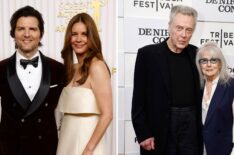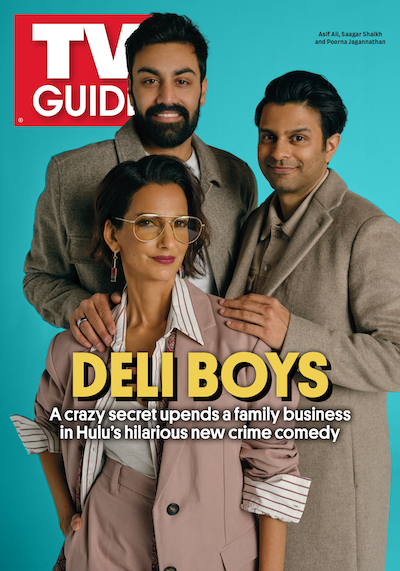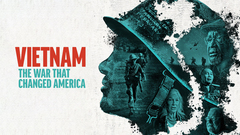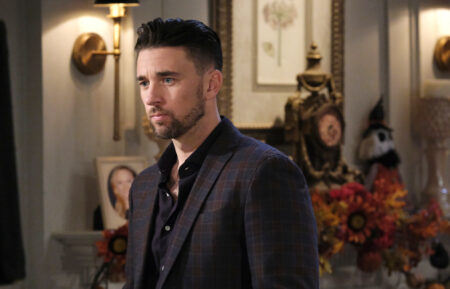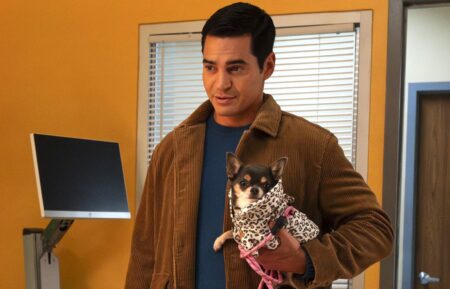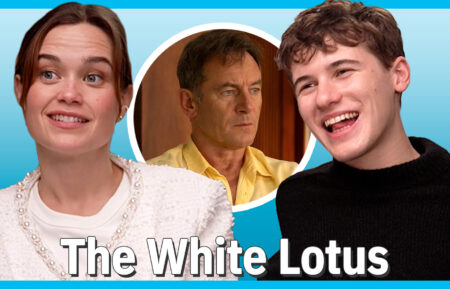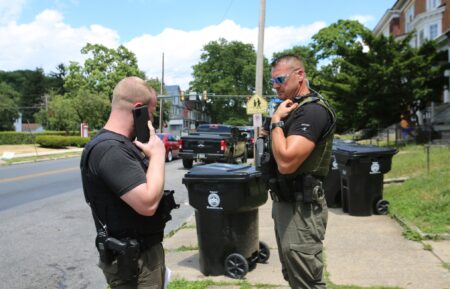Inside Apple TV+’s Powerful Vietnam War Docuseries That Made Narrator Ethan Hawke Cry, Plus Sneak Peak Video
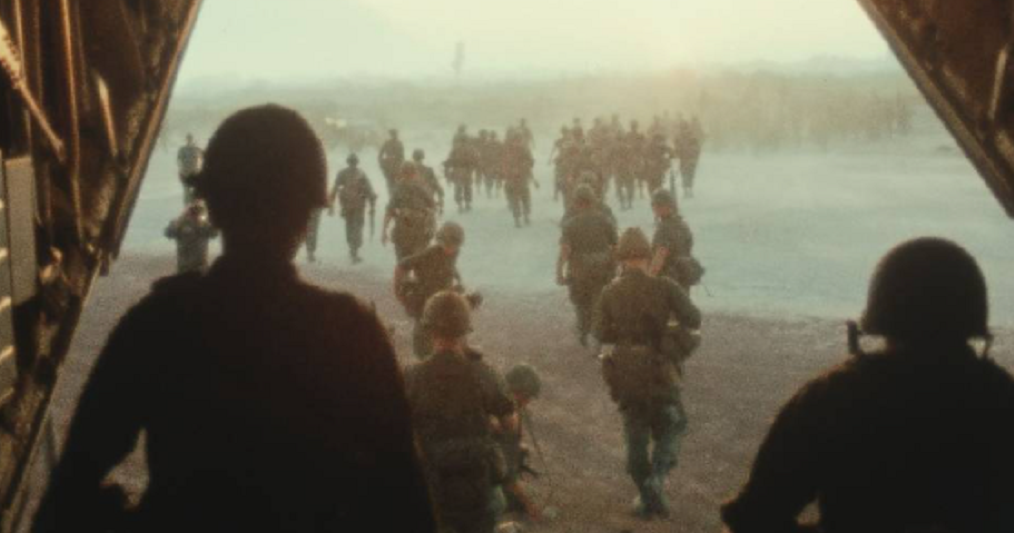
Exclusive
There is the old saying “Those who cannot remember the past are condemned to repeat it.” Coming up on the 50th anniversary of the fall of Saigon and the end of the Vietnam War Apple TV+ is releasing a brand new docuseries Vietnam: The War That Changed America. It premieres January 31, and TV Insider is bringing you a sneak peek of what’s in store with an exclusive first look at the official trailer (see below). Each of the six episodes, narrated by Ethan Hawke, provides detailed insight into the Vietnam War as told by those who lived through it.
From the battlefield to the home front, archival footage and heart wrenching accounts from all sides paint a complete picture of the impact Vietnam had and still has today. William “Bill” Broyles Jr. was among the contributors. Broyles served in Vietnam as first lieutenant in the United States Marine Corps. He went on to draw from his experiences on the big and small screen creating China Beach and writing credits like Flags of Our Fathers and Jarhead.
Here he and producer Caroline Marsden (9/11: One Day in America) of 72 Films tell us about what makes this docuseries so special.
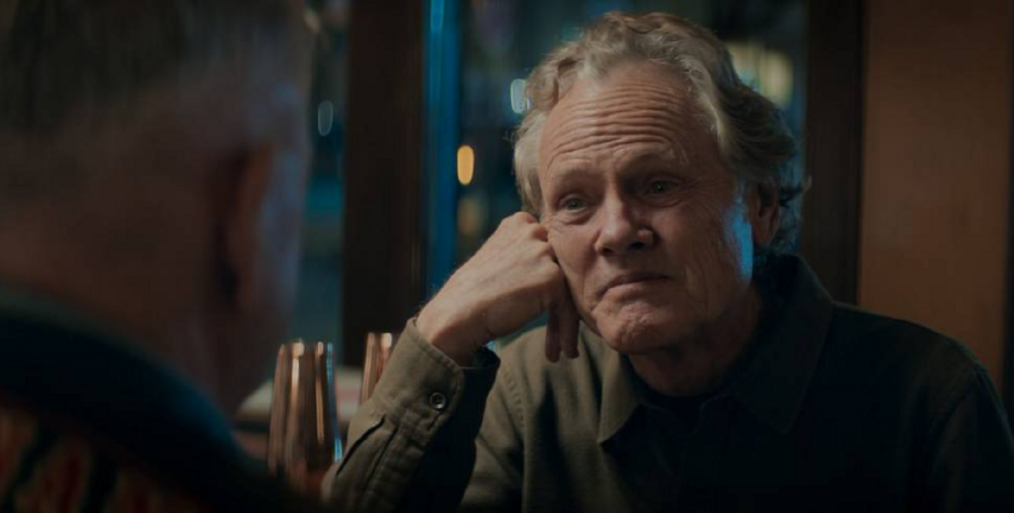
Bill Broyles, US Marine Corps commander, reuniting with Jeff Hiers, a radioman that helped him earn the respect of their platoon, in “Vietnam” The War That Changed America,” premiering globally January 31, 2025 on Apple TV+.
This is truly an incredible docuseries. Caroline, what was the process like of not only finding these individuals who lived through Vietnam to tell their stories, but also obtaining footage to accompany their accounts?
Caroline Marsden: I made a few films where we work from the archival footage. Our approach is to find footage from national archives from around the world. Vietnam was a war that was covered internationally, so we researched international archives. What was unique about the Vietnam War was that it was filmed in a way that no other war was filmed before.
The Vietnam War was when reporters and documentary crew were given unparalleled access. They could just go and film anywhere. For the first time, it beamed into everyone’s living rooms. It was at a time when everyone basically in America had a television. We had an unbelievable amount of footage to work from. Then we went about finding some of the people in the footage. We would approach them about being interviewed. Then we found other people who had experiences that spoke to the wider historical moment of the war at that time. We cover 10 years of the war from 1965 to the fall of Saigon. That’s how we went about doing it.
Bill, you come with a unique perspective being a veteran and having this vast film, screenwriting, and journalism career. How was it for you to reflect back at that time with today’s lens?
William “Bill” Broyles Jr.: It was a privilege to be a part of this. I admire it as a filmmaker with what Caroline and her team did. Also, as I’m watching, it was incredibly emotional for me. They brought up a lot of things. All those incredible experiences we had and how young and clueless I was. I didn’t know how I was clueless and how we lived and survived together and to come back after all these years.
The beauty of what Caroline and her team did was immerse us into the personal experiences of this war. The images are so powerful. All the historical stuff we’ve seen before many times, that’s all in books now. What it shows is war is alive in the lives of all of us who were there and the Vietnamese as well. Then you look at what is happening with Gaza and Ukraine now, there is much of the same. There is the little bit of we haven’t learned anything.
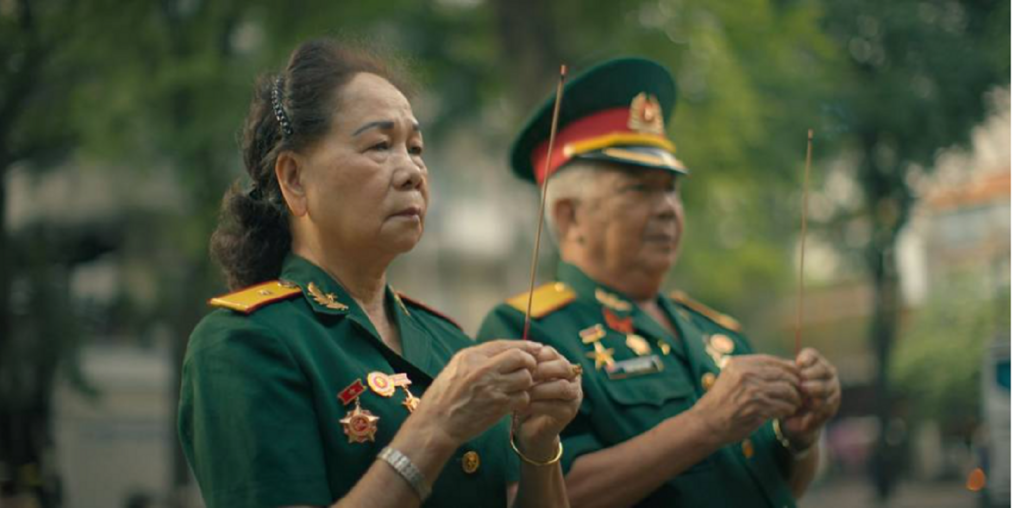
Bay Hon and Vu Minh Nghia, survivors who fought in the Tet Offensive, paying respects to fallen comrades on the anniversary of the attack, in “Vietnam” The War That Changed America,” premiering globally January 31, 2025 on Apple TV+.
Caroline, you also speak to those on the Viet Cong side. How important was that to telling the complete story?
Caroline: We wanted to make sure we had many different perspectives. We have South Vietnamese and the Viet Cong as you point out. We wanted to make sure we reflected men, women and everyone. We started again with the archival footage. During Episode 2 with the Tet [Offensive], there was a lot of footage in Saigon at that time because all the journalists were based there. So when they attacked the American Embassy and presidential palace, we sort of looked for people in the footage. We managed to get interviews with a man and a woman who set out to attack the presidential palace. They tell this story about how they were able to hide in the half-built hotel across the street.
You can see all this in the footage as they’re telling you where they were hiding. How one got shot and the other one saved their lives. You have an inside track on that attack. We also have in Episode 6 a man whose father was killed by South Vietnamese forces. He joins the South Vietnamese army as this sleeper agent. We have footage of him being trained in the United States. Then during the fall of Saigon where he drops the bomb on the presidential palace. It’s all super important to get their perspective and the South Vietnamese. What was interesting about interviewing the Vietcong, people much later on how similar everyone was. Bill, I know, has been back to Vietnam since. People were all so young at the time. There is this real sense of empathy for the other side that came up.
Ethan Hawke did an incredible job narrating the project. He helped set the tone of stories presented.
Caroline: He was amazing. As he was reading through the narration, he was crying in some parts. He was incredibly moved by it. He was our first choice. He has a wonderful voice and intelligence. You also feel like had he been born at the time he would have been out there as well. He is just brilliant. We were super thrilled he did it.
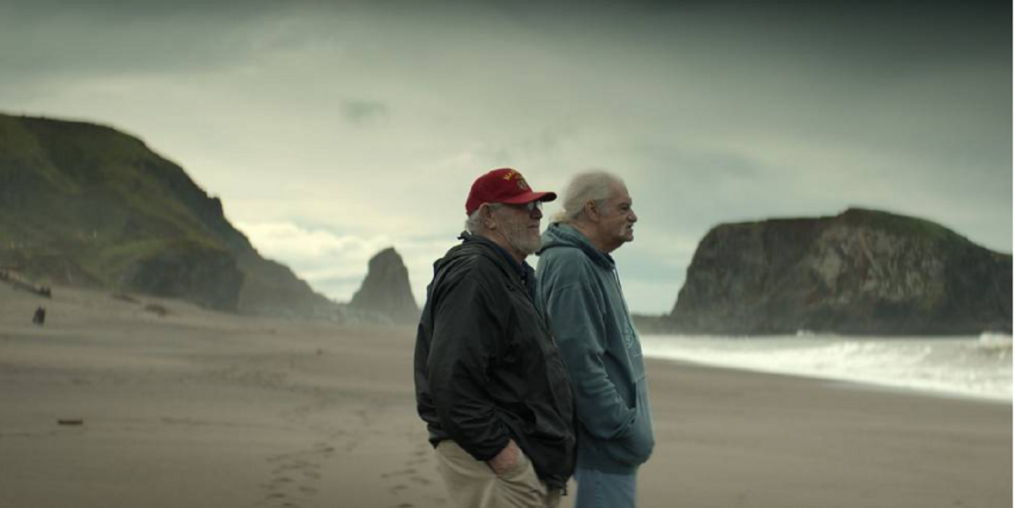
(L-R) Jim Fife and Scott Camil, best friends in the US Marine Corps during the war who were later divided by their work after the war, reuniting in “Vietnam” The War That Changed America,” premiering globally January 31, 2025 on Apple TV+.
Bill, there are some truly powerful moments with these reunions. There is this overarching theme of forgiveness, finding peace and also maybe not letting a difference of opinion get in the way of a friendship or bond formed. What were your thoughts on this aspect of the doc?
It’s so important. Not just forgiving what happened to us, but what we’ve done to others as well. To get a sense of humility. The reunions are so powerful because we’re all still here. So many of the people we knew are not. There was a brilliance in what the filmmakers did was bring those emotions to the forefront. Forgiveness is definitely one. There are others there that are very complex.
I watched some of the episodes a couple of times and learned new things each time. Ethan Hawke’s voice sounds like he was there. He is so present in every moment. That’s what I think the viewer feels, the presence and being there. I felt that as a participant. I was caught up in it as an audience member. How beautiful it was and original it was. It was powerful.
For me, Episode 5 was especially touching. Early in the docuseries we hear from who we think might be a widow Marty talking about her husband Porter Halyburton. Fast forward to later on, and we find out he was alive as a POW prisoner for seven years. Then the reunion with her and the child he never really knew. That is quite the epic love story.
Caroline: That’s so nice! I’m going to tell them you had that reaction. It is a beautiful love story and an example of how we approach this topic. He goes off, and she is like, “He’ll be home by Christmas.” This is early on in the war. She starts campaigning to get him back, and you get this sense in Episode 5 the protest movement that started on college campuses has really broadened at this point.
There are full sections and Marty campaigning with a group of women to get the war to end and the POWs home. I think their story is incredibly moving. It should really be a feature film. Also, it charts the war through a personal experience, which is a far better way I think about learning what happened.
What do you hope people get from watching this?
Caroline: People will take away what they takeaway, but I hope it’s a lot of empathy for all sides. We don’t have an agenda. We set out to talk to people, hear from them and show people the result of that through these stories. My main hope is that the people who took part are proud of it.
Bill: I hope they see it’s easier to start a war to stop one. That war in fact didn’t end. They go on after people pass on and go on for generations. We’re at war now. If we can just approach these things with humility and forgiveness, maybe we wouldn’t need these beautiful documentaries about tragedies and redemptions in the end.
Vietnam: The War That Changed America premiere, January 31, Apple TV+
From TV Guide Magazine
Crime, Comedy & Convenience Stores: Unwrapping Hulu's 'Deli Boys' With the Cast
Cupcakes, corndogs…and cocaine?! Two brothers find themselves in a hilarious pickle when they inherit an unseemly bodega biz in Hulu’s new comedy Deli Boys. Find out how The Sopranos and Real Housewives of Orange County influenced the cast. Read the story now on TV Insider.

